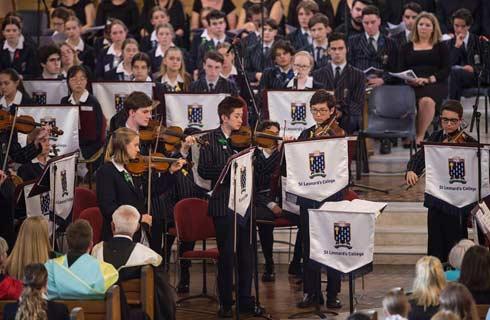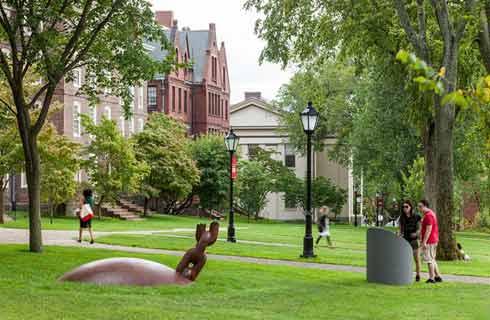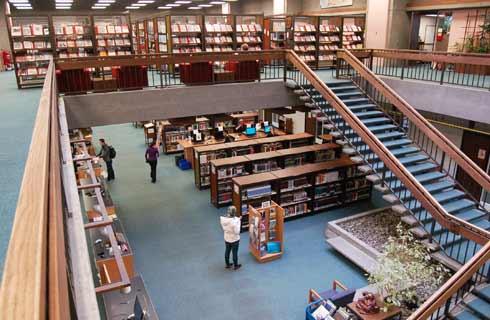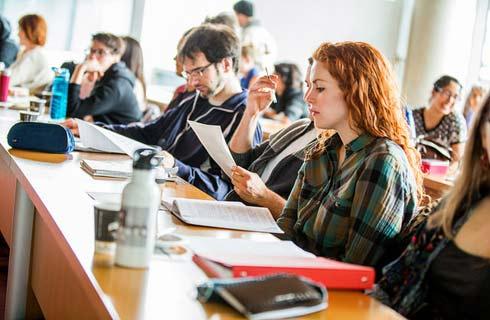葡萄栽培与酿酒学士学位(7级)
Bachelor of Viticulture and Winemaking (Level 7)

学历文凭
Bachelor Degree

专业院系
Department of Viticulture and Winemaking

开学时间

课程时长

课程学费

国际学生入学条件
Students are required to complete international qualifications equivalent to New Zealand NCEA Level 3. Entry requirements vary from country to country. OR
Any qualification (New Zealand or overseas) recognised by NZQA as being equivalent to the achievement of NCEA Level 3. If you have undertaken examinations other than NCEA (e.g. International Baccalaureate, Cambridge Examination), NMIT will assess your qualification for academic entry equivalency.
OR
Any Level 4 qualification in a related field.
English language requirements
- IELTS test: Academic score of 6.0 with no band score lower than 5.5. TOEFL Internet-based test (iBT): Score of 60 (with a writing score of 18); PTE (Academic) score of 50 with no band score lower than 42; Cambridge English Qualifications: B2 First, or B2 First for schools, or C1 Advanced, or C2 Proficiency with a score of 169. No less than 162 in each skill. OET: Minimum of Grade C or 200 in all sub-tests. NZCEL - Level 4 (Academic). Language Cert - C1 Expert International ESOL Written (LRW) PASS with no less than 25/50 in each skill and Spoken (S) PASS.
OR
Achieved NCEA Level 3 University Entrance requirement.
Special Entry
In exceptional circumstances, an applicant under the age of 20 years who does not meet the academic entry requirements may be granted entry to the Programme where they supply evidence to satisfy the Academic Committee of their ability to succeed on the Bachelor of Viticulture and Winemaking.
IDP—雅思考试联合主办方

雅思考试总分
6.0
- 雅思总分:6
- 托福网考总分:60
- 托福笔试总分:160
- 其他语言考试:PTE (Academic) score of 50 with no band score lower than 42
CRICOS代码: NE4864
申请截止日期: 请与IDP联系 以获取详细信息。
课程简介
Gain real-life skills, take part in wine events and build industry connections.<br>Essential to building your capabilities as a wine grower, this programme is designed to teach you the specialist technical, scientific, research and business skills necessary for working in the wine industry. <br>Students are mentored and taught by winemaking professionals and viticulture researchers, gaining skills and experience in a real-world setting. Research projects, field trips, guest speakers and vitally, semester breaks during harvest allowing students to work a paid vintage are essential to learners' growth and connection with industry. <br>Second and third-year students may take up a cellar hand, viticulture assistant or similar roles during vintage, allowing them to apply their knowledge in a real-world setting and gain valuable work experience.<br>Years one and two consist mainly of core papers, focussing on plant and soil sciences, viticulture practises, vineyard management, wine production, wine chemistry and analysis. You will enjoy learning to taste wine with the professionals and may even get the opportunity to be a part of local wine awards and competitions. <br>No matter which wine region you work in, you can learn flexibly through self-directed online study and on-the-job training. During regular block courses, you can also connect with fellow learners and gain hands-on experience with our on-campus vineyard, winery, and laboratory facilities. <br>Students have the flexibility with the programme delivery to base themselves locally or nationally. Whether you are studying in New Zealand's most productive wine region, Marlborough, or other great grape varietal regions, you can be sure of a supportive, interactive and encouraging environment.
相关申请
 预科
预科 奖学金
奖学金 实习机会
实习机会 在校学习
在校学习 跨境学习
跨境学习 校园授课-线上开始
校园授课-线上开始 在线/远程学习
在线/远程学习
开学时间&学费
学费信息仅供参考,请与IDP联系以获取详细信息
| 开学时间 | 时长 | 学费 | 地点 |
|---|
本校相关课程

Graduate Diploma in Accounting (Level 7)
学历文凭
(Graduate) Diploma level 7
开学日期
课程费用总额


资讯科技安全管理深造文凭
学历文凭
Postgraduate Diploma
开学日期
课程费用总额


国际商务研究生文凭
学历文凭
Postgraduate Diploma
开学日期
课程费用总额


可持续水产养殖研究生文凭
学历文凭
Postgraduate Diploma
开学日期
课程费用总额


水产养殖与海洋保护学士
学历文凭
Bachelor Degree
开学日期
课程费用总额


艺术与媒体学士学位(7级)
学历文凭
Bachelor Degree
开学日期
课程费用总额

其他相关课程

新西兰园艺生产文凭(5级)(水果生产)
 奥塔哥理工学院
奥塔哥理工学院学历文凭
Diploma level 5
开学日期
课程费用总额


FdSc Horticulture / Horticulture -Garden Design - D400
 诺丁汉特伦特大学
诺丁汉特伦特大学泰晤士高等教育世界大学排名:696
学历文凭
Foundation for Undergraduate
开学日期
课程费用总额


新西兰应用园艺证书(三级)景观建设
 怀卡托理工学院
怀卡托理工学院学历文凭
Certificate level 3
开学日期
课程费用总额


园艺四级证书
 西澳大利亚州职业技术学院
西澳大利亚州职业技术学院学历文凭
Certificate IV
开学日期
课程费用总额


园艺三级证书
 新南威尔士州立职业技术学院
新南威尔士州立职业技术学院学历文凭
Certificate III
开学日期
课程费用总额


Certificate III in Horticulture
 康安巴特曼技术与继续教育学院
康安巴特曼技术与继续教育学院学历文凭
Certificate III
开学日期
课程费用总额











